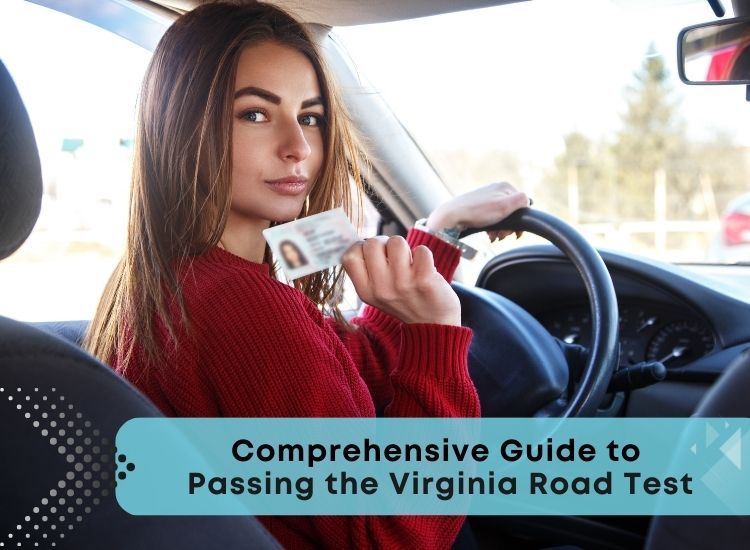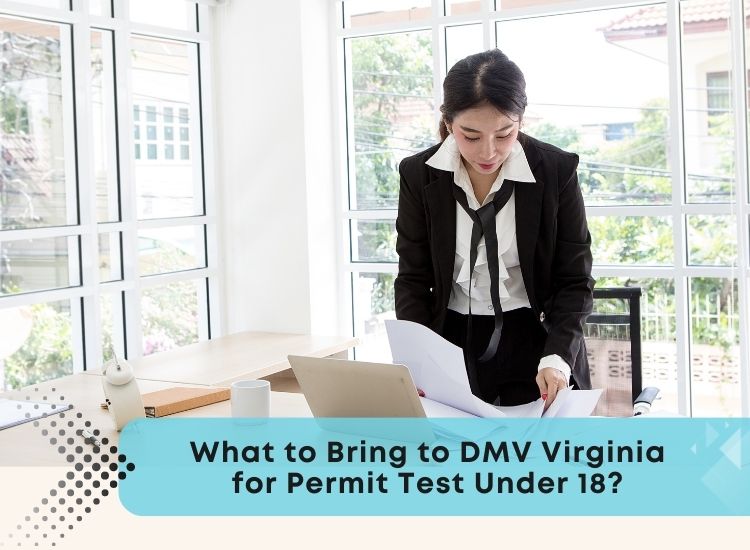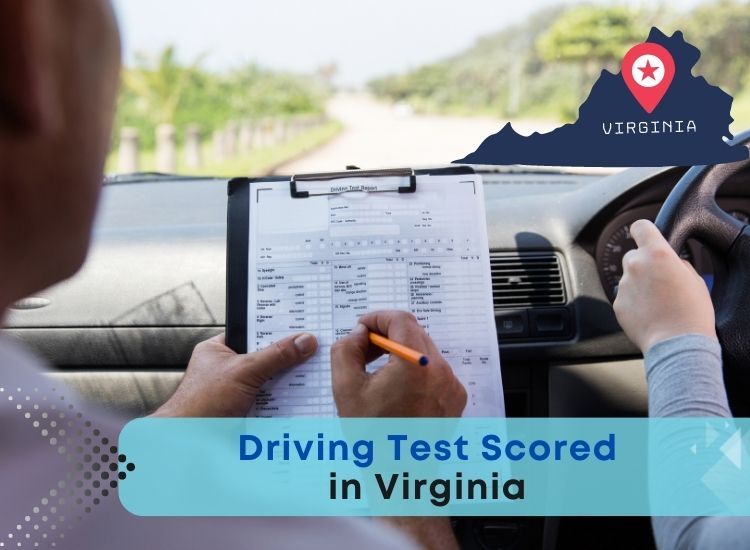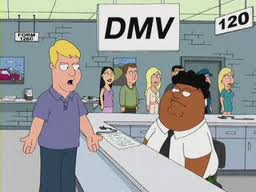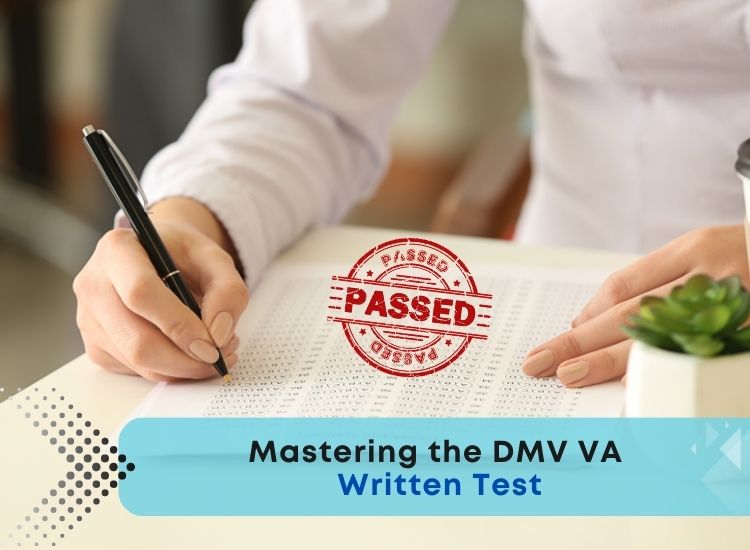Comprehensive Guide to Passing the Virginia Road Test
Welcome to our comprehensive guide to help you prepare for and pass the Virginia road test. We understand the importance of obtaining your driver’s license and the challenges that come with it. Our goal is to provide you with detailed information, practical tips and valuable insights to increase your chances of success on the road test. Let’s dive in!
Understanding the Virginia Road Test
Before we delve into the specifics, let’s familiarize ourselves with the Virginia road test. This test is designed to evaluate your driving skills, knowledge of traffic laws and ability to handle different situations on the road. It consists of two main parts: the driving skills test and the road sign and general knowledge test.
Driving Skills Test
The driving skills test assesses your ability to operate a vehicle safely and effectively. During this portion, a certified examiner will evaluate your performance in various driving maneuvers. These maneuvers may include:
Parallel parking: Demonstrating your ability to park your vehicle parallel to the curb accurately.
Three-point turn: Showing your skill in executing a three-point turn safely and efficiently.
Lane changing: Displaying your capability to change lanes smoothly and appropriately.
Intersection navigation: Properly approaching, entering, and exiting intersections, while obeying traffic signals and signs.
Lane positioning: Maintaining the correct position within your lane and adjusting appropriately.
Following distance: Keeping a safe distance behind other vehicles.
Yielding right-of-way: Yielding to other vehicles and pedestrians when required.
Road Sign and General Knowledge Test
In addition to the driving skills test, you will also need to pass the road sign and general knowledge test. This written exam assesses your understanding of traffic laws, road signs, and various driving situations. It is essential to study the Virginia Driver’s Manual thoroughly to ensure you are well-prepared for this portion of the road test.
Virginia Road Sign Study
Virginia General Knowledge Study
Tips to Excel in the Virginia Road Test
Now that we have an overview of the road test, let’s explore some tips and strategies to help you excel and increase your chances of passing on the first attempt.
1. Study the Virginia Driver’s Manual
The Virginia Driver’s Manual is an invaluable resource for understanding the rules of the road and preparing for the road test. Make sure to read it carefully and familiarize yourself with all the traffic laws, road signs, and driving techniques mentioned.
2. Enroll in a Driver’s Education Program
Consider enrolling in a driver’s education program to receive professional guidance and instruction. These programs provide comprehensive training and often simulate the road test, allowing you to practice under realistic conditions.
3. Practice Regularly
Practice makes perfect, and this saying holds true for the road test as well. Dedicate sufficient time to practice your driving skills, especially the specific maneuvers tested during the exam. Focus on areas where you feel less confident and aim to improve your performance over time.
4. Familiarize Yourself with the Test Route
Try to gain knowledge about the typical test routes used during the Virginia road test. Understanding the roads, intersections, and potential challenges will help you feel more prepared and confident on the actual test day.
5. Observe Good Driving Habits
Developing good driving habits is crucial not only for the road test but also for your overall safety on the road. Some essential habits to keep in mind include obeying speed limits, using turn signals properly, checking blind spots, maintaining proper lane positioning, and observing traffic rules diligently.
6. Develop Defensive Driving Skills
In addition to mastering the basic driving maneuvers, it’s essential to develop defensive driving skills. This involves being mindful of your environment, anticipating possible dangers, and keeping a safe distance from other cars. Displaying defensive driving skills during the practical exam will demonstrate your commitment to road safety.
7. Practice Proper Vehicle Control
During the road test, the examiner will assess your control over the vehicle. Ensure you are comfortable and confident with various vehicle controls, such as steering, braking, accelerating, and using the mirrors effectively. Smooth and precise control of the vehicle demonstrates your competence as a driver.
8. Manage Test Anxiety
It’s normal to feel nervous before a driving test, but it’s crucial to handle test anxiety in a helpful way. Try practicing relaxation methods like deep breathing and positive visualization to relax your nerves. Keep in mind that you’ve prepared adequately, and approaching the test with a positive attitude will enhance your performance.
9. Review Common Mistakes
Understanding common mistakes made during the road test can help you avoid them. Some common errors include inadequate mirror usage, failure to signal lane changes, rolling stops at stop signs, improper speed control, and incorrect hand placement on the steering wheel. By being aware of these mistakes, you can actively focus on avoiding them during the exam.
10. Stay Updated with Traffic Laws
Traffic laws and regulations may change over time, so it’s crucial to stay updated with any amendments. Keep yourself informed about the latest traffic laws in Virginia, including any recent changes or additions. This knowledge will ensure you are well-prepared for the road sign and general knowledge test.
Remember, while our guide provides valuable insights and tips, it’s essential to approach the road test with a well-rounded preparation strategy. Each individual’s skills and experience may vary, so adapt these tips to your specific needs. Practice consistently, maintain a positive mindset, and demonstrate safe and responsible driving habits during the test.
Actual DMV Road Test
We wish you the best of luck on your Virginia road test. Stay focused, confident, and drive safely!
Frequently Asked Questions
What are the two main parts of the Virginia road test?
The Virginia road test consists of two main parts: the driving skills test and the road sign and general knowledge test. The driving skills test evaluates your ability to perform specific maneuvers, such as parallel parking and lane changing. The road sign and general knowledge test assesses your understanding of traffic laws and road signs. By successfully completing both parts, you demonstrate your readiness to become a licensed driver in Virginia.
How can enrolling in a driver’s education program benefit your preparation for the road test?
Enrolling in a driver’s education program can greatly benefit your preparation for the road test. These programs provide professional guidance and instruction, helping you develop the necessary skills and knowledge to become a safe and confident driver. With structured lessons, practice sessions, and simulated road tests, driver’s education programs offer a comprehensive approach to preparing for the road test. They can also help you familiarize yourself with the specific requirements and expectations of the Virginia road test, increasing your chances of success.
Why is it important to practice defensive driving skills in addition to mastering basic maneuvers?
Practicing defensive driving skills is crucial alongside mastering basic maneuvers because it emphasizes safety and reduces the risk of accidents. While basic maneuvers focus on controlling the vehicle, defensive driving involves being aware of your surroundings, anticipating potential hazards, and adopting proactive strategies to prevent collisions. By practicing defensive driving, you can develop the ability to anticipate and respond to unpredictable situations, making you a more responsible and confident driver on the road.
What are some common mistakes to avoid during the Virginia road test?
During the Virginia road test, it is important to avoid common mistakes that can lead to point deductions or even failure. Some common mistakes to avoid include inadequate mirror usage, failure to signal lane changes, rolling stops at stop signs, improper speed control, and incorrect hand placement on the steering wheel. By being mindful of these errors, you can increase your chances of performing well and passing the road test successfully.
Why is it crucial to stay updated with the latest traffic laws in Virginia?
Staying updated with the latest traffic laws in Virginia is crucial because it ensures that you are aware of any changes or additions to the existing regulations. By staying informed, you can drive in compliance with the law, reduce the risk of violations, and maintain your safety on the road. Being knowledgeable about the current traffic laws also prepares you for the road sign and general knowledge test, increasing your chances of passing the Virginia road test.
Resources I Use
Resource 1: DMV Virginia – http://www.dmvNOW.com
Resource 2: DMV Virginia Manual : https://www.dmv.virginia.gov/webdoc/pdf/dmv39.pdf

